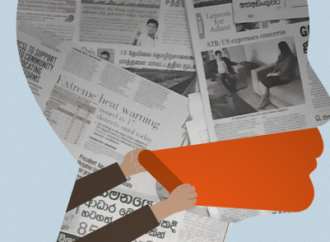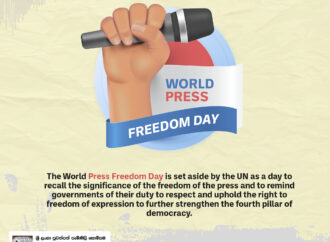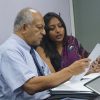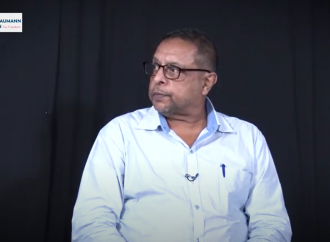GENEVA -As authorities worldwide grapple with swelling demonstrations over issues like political rights and racial justice, a UN committee on July 29, reaffirmed that protesting peacefully, online or in person, is a fundamental human right. The independent experts on the Human Rights Committee published a fresh interpretation of the right to peaceful assembly, offering comprehensive
GENEVA -As authorities worldwide grapple with swelling demonstrations over issues like political rights and racial justice, a UN committee on July 29, reaffirmed that protesting peacefully, online or in person, is a fundamental human right.
The independent experts on the Human Rights Committee published a fresh interpretation of the right to peaceful assembly, offering comprehensive legal guidance on where and how it applies and also outlining governments’ obligations.
“Recent developments, including the COVID-19 pandemic, have created unprecedented challenges” to ensuring the right to peaceful assembly, the committee said in a statement.
“And worldwide protests in support of Black Lives Matter have underlined its importance,” it added.
The committee, made up of 18 independent experts, is tasked with monitoring how countries implement the International Covenant on Civil and Political Rights (ICCPR), which under Article 21 guarantees the right to peaceful assembly.
“It is a fundamental human right for individuals to join a peaceful assembly to express themselves, to celebrate, or to air grievances,” committee member Christof Heyns, a law professor at the University of Pretoria, said in the statement.
“It constitutes the very foundation of a democratic society.”
He stressed that the right belongs to everyone, without exception.
“Everyone, including children, foreign nationals, women, migrant workers, asylum-seekers and refugees, can exercise the right of peaceful assembly.”
Heyns said the understanding around what constitutes a gathering had evolved: “Many assemblies today take place online… (which) is also protected by the right.”
In its so-called general comment on Article 21, the committee highlighted the obligations of governments to facilitate peaceful assemblies and to protect participants from possible abuse by members of the public.
Governments must “not prohibit, restrict, block or disrupt assemblies without compelling justification,” the committee said.
Heyns warned that “generalized references to public order or public safety, or an unspecified risk of potential violence are not solid grounds for governments to prohibit peaceful assemblies.”
“Blanket restrictions on participation in peaceful assemblies are not appropriate.”
The general comment also provided guidance on a range of issues under discussion in many countries, and it stressed that peaceful protesters have the right to wear masks or hoods to cover their face.
“Governments should not collect personal data to harass or intimidate participants,” the committee said, also insisting that governments must not block internet networks or close down websites, which are vital tools to organizing peaceful assemblies. (Source: AFP)


















Leave a Comment
Your email address will not be published. Required fields are marked with *